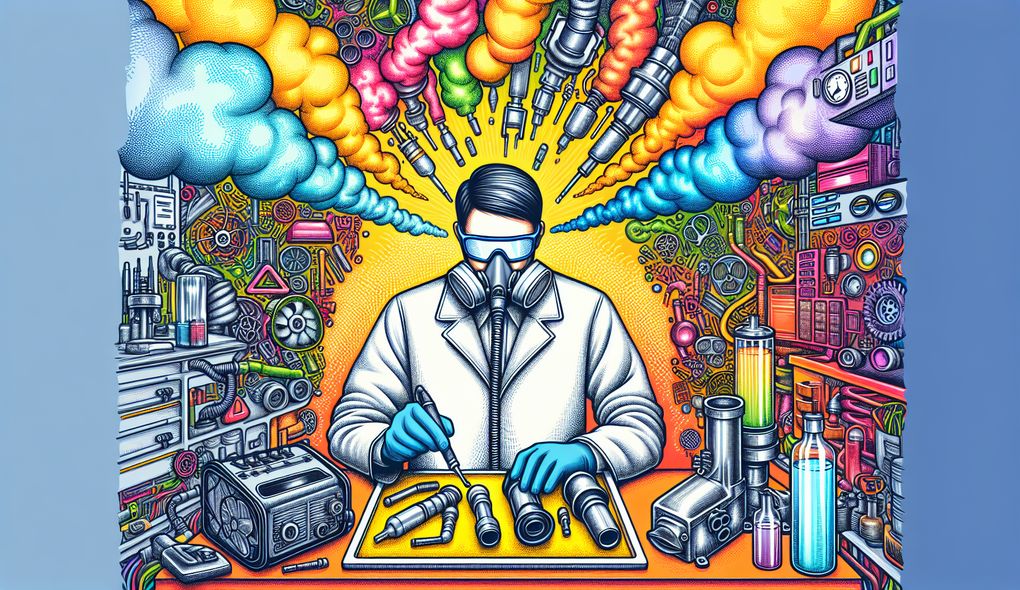What strategies do you use to optimize emissions control systems?
SENIOR LEVEL

Sample answer to the question:
To optimize emissions control systems, I implement a systematic approach that involves data analysis, performance monitoring, and process optimization. I start by conducting a thorough assessment of the existing emissions control system to identify areas for improvement. Then, I collect and analyze data on emissions levels, pollutant concentrations, and operational parameters. Based on this analysis, I develop strategies to optimize the system, such as adjusting process parameters, implementing new technologies, or improving maintenance practices. I also monitor the performance of the system through regular inspections and testing. This allows me to identify any deviations from the desired performance and take corrective actions. Overall, my goal is to continuously improve the efficiency and effectiveness of emissions control systems to minimize environmental impact.
Here is a more solid answer:
To optimize emissions control systems, I utilize a comprehensive approach that combines data analysis, process optimization, and technological advancements. Firstly, I conduct a detailed analysis of the emissions control system, including pollutant concentration measurements, performance monitoring, and compliance assessment. This analysis helps me identify areas for improvement and develop strategies tailored to the specific needs of the operation. For example, I may recommend adjusting process parameters, implementing new technologies, or enhancing maintenance practices. Additionally, I leverage my knowledge of chemical and environmental engineering principles to ensure the design and implementation of effective control measures. I also utilize CAD and simulation software to model and simulate the performance of various system configurations. This enables me to optimize the system design and validate the expected emissions reductions. Furthermore, I actively stay informed about advancements in emissions control technology and collaborate with industry experts to explore innovative solutions. My strong leadership and project management abilities allow me to lead cross-functional teams in the successful implementation of emissions control projects, including cost estimation, timeline management, and compliance with environmental regulations. Through effective verbal and written communication, I ensure clear and concise reporting of emissions testing results, system performance evaluations, and compliance documentation. Overall, my goal is to continuously improve emissions control systems, reduce environmental impact, and ensure compliance with regulations.
Why is this a more solid answer?
The solid answer provides more specific details and examples to demonstrate the candidate's experience and expertise in optimizing emissions control systems. It addresses all the evaluation areas mentioned in the job description and provides a comprehensive overview of the strategies used. However, it can still be improved by including more specific examples of past projects or achievements to further strengthen the candidate's qualifications.
An example of a exceptional answer:
To optimize emissions control systems, I employ a multi-faceted approach that encompasses technological innovation, continuous improvement, and regulatory compliance. Firstly, I utilize advanced data analysis techniques to identify patterns and trends in emissions data, enabling me to pinpoint areas of inefficiency or non-compliance. For example, I may use statistical analysis to identify the key factors contributing to high pollutant emissions and develop strategies to mitigate them. Additionally, I actively collaborate with industry experts, attend conferences, and engage in research and development to stay at the forefront of emissions control technology. This allows me to leverage cutting-edge solutions such as catalytic converters, scrubbers, and advanced monitoring systems. I also prioritize continuous improvement by conducting regular assessments of the emissions control system's performance and using key performance indicators to track improvements over time. This iterative approach helps me identify potential optimizations in system design, process parameters, or maintenance practices. Furthermore, I ensure compliance with local and international environmental regulations by monitoring regulatory changes, conducting audits, and maintaining up-to-date documentation. I also engage in proactive communication with regulatory bodies to seek guidance or clarify requirements. A key aspect of my strategy is effective collaboration with cross-functional teams. I actively involve stakeholders from various departments, such as operations, engineering, and maintenance, to ensure a holistic approach to emissions control. By promoting a culture of knowledge sharing and training, I empower team members to contribute to the optimization process and develop their skills. Overall, my exceptional approach to optimizing emissions control systems combines cutting-edge technology, continuous improvement, and proactive compliance to achieve the highest levels of environmental sustainability.
Why is this an exceptional answer?
The exceptional answer goes above and beyond the solid answer by providing more specific details and examples of the candidate's strategies and approaches. It demonstrates a deep understanding of the subject matter and showcases the candidate's expertise in optimizing emissions control systems. The answer also addresses all the evaluation areas mentioned in the job description and provides a comprehensive and well-rounded response. However, it could be further improved by including quantitative results or metrics to highlight the candidate's past achievements in optimizing emissions control systems.
How to prepare for this question:
- Familiarize yourself with the latest advancements in emissions control technology and techniques.
- Review and understand the environmental regulations and compliance requirements relevant to emissions control.
- Prepare examples of past projects or experiences where you successfully optimized emissions control systems.
- Highlight your analytical and problem-solving skills, as well as your proficiency in using CAD and simulation software.
- Demonstrate your leadership and project management abilities by discussing past experiences leading complex projects.
- Practice effective verbal and written communication skills by presenting your ideas clearly and concisely.
- Emphasize your ability to work collaboratively in a team environment and provide examples of successful collaboration with cross-functional teams.
- Consider discussing any experience mentoring and training junior engineers or team members.
What are interviewers evaluating with this question?
- Analytical and problem-solving skills
- Knowledge of chemical and environmental engineering principles
- Proficiency in using CAD and simulation software for system design
- Leadership and project management abilities
- Verbal and written communication skills
- Collaboration skills

